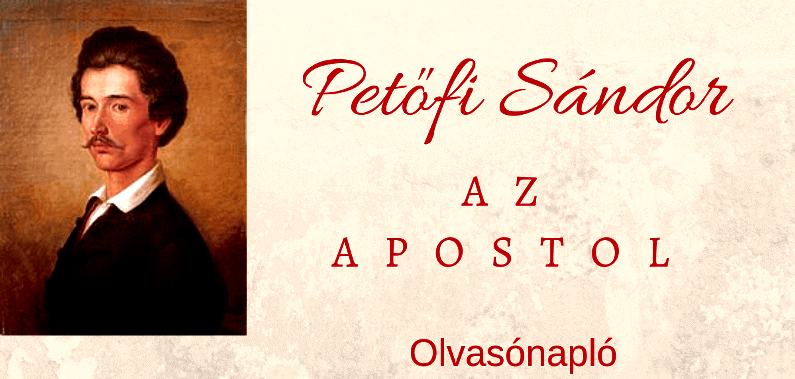Petőfi is a significant representative of our poetry even by the standards of world literature, whose name dates back to the 19th century. century, he went beyond our borders, and his works were translated by several people. Not only for the great European languages, but also for Portuguese, as strange as it may seem, which has been little registered in our country for a long time. In Portugal in the XIX had a huge cult following at the end of the century.
Sándor Petőfi 's narrative poem The Apostle can now also be read in Portuguese The volume was published in Brazil, in Curitiba, Paraná State, as the 5th volume of the Biblioteca Pannonica series started by Honorary Consul Marco Aurélio Schetino de Lima The work was translated into Portuguese by the poet Airton Uchoa Neto Ferenc Pál , professor of the Portuguese language, who was asked by Gondola.
- Why is it important for Petőfi to be present in South America: a country with a huge territory, a BRICS member state struggling with many challenges?
- Petőfi is a significant representative of our poetry even by the standards of world literature, whose name dates back to the 19th century. century, he went beyond our borders, and his works were translated by several people. Not only for the great European languages, but also for Portuguese, as strange as it may seem, which has been little registered in our country for a long time. In Portugal in the XIX at the end of the 19th century, it had a huge cult, as the poet and writer Ernesto Rodrigues Teófilo Braga, a famous literary scholar with a positivist spirit, spoke highly of Petőfi's poems in his literary history, and several Portuguese poets of his time also translated from him. What is even more interesting is - as reported in the October 30, 1859 edition of the Vasárnapi Újság - that around this time a Hungarian poetry anthology with poems by 11 Hungarian poets was published in Rio de Janeiro, and in this selection two poems, Az alföld and a Szülőföldem featured by Sándor Petőfi. Among the Hungarian emigration living in Brazil, the attraction to the Hungarian homeland has always been alive, and literature played an important role in this. The XX. since the beginning of the 20th century, the works of at least three or four dozen Hungarian authors - mainly prose works, of course - were translated into Brazilian Portuguese. At the same time, Hungary, the Hungarian language and culture are particularly attractive in Latin America. the Argentine Julio Cortázar - also read in Hungarian The distant companion - travels to Budapest, just as the main character of Chico Buarque calls Hungarian a language that even the devil respects. In Brazil, university students can study Hungarian in three places: at the Faculty of Humanities of the USP in São Paulo, at the language lectureship of the UECE in Fortaleza, and in Curitiba, at the courses of Unicurtiba, which is organized by our honorary consul working there. And these students not only want to learn Hungarian, but also want to get to know and read our country's literature.
"Why The Apostle?"
– The Apostle was published as the 5th volume of a series called Biblioteca Pannonica, presenting Hungarian literature, in a bilingual edition (thinking of language learners), just like the other volumes of the series: Levente Pál’s poems and short prose, István Örkény’s “minutes” and the 11 classic Hungarian poet, all of which can be downloaded for free from the Editora Clássica website (https://editoraclassica.com.br/). We wanted to publish a representative selection of the poet's poems for the Petőfi anniversary, but we were informed that a volume of Petőfi's poems is already being prepared in São Paulo. This is how we decided on The Apostle, which - although it is known around the world - was published in few foreign language translations. I think that this gloomy, shocking narrative poem can find understanding and sensitive readers on the Latin American continent who are waiting for social changes. And, of course, it shows the excellence and world literature values of its poet in a unique way...
Source: Gondola
Author: Pál Molnár
(Cover image: olvasonaplopo.hu)













